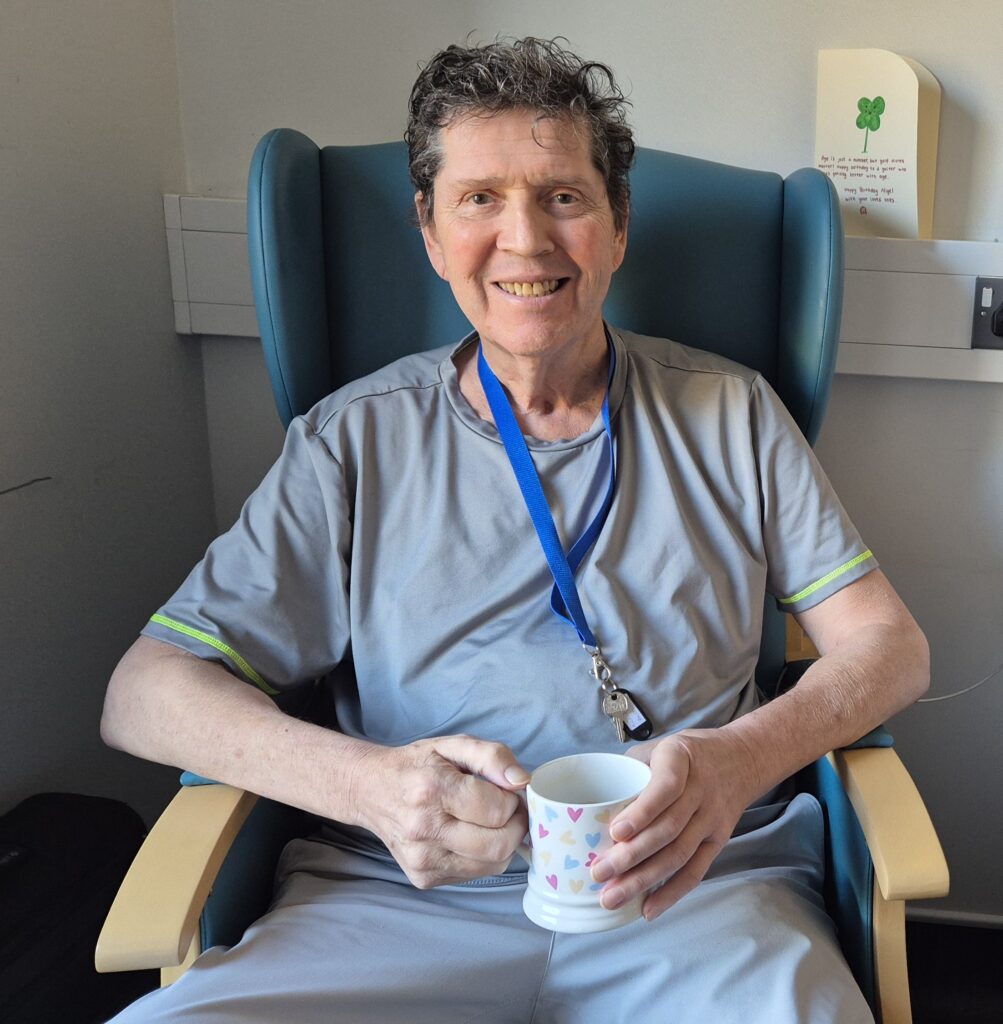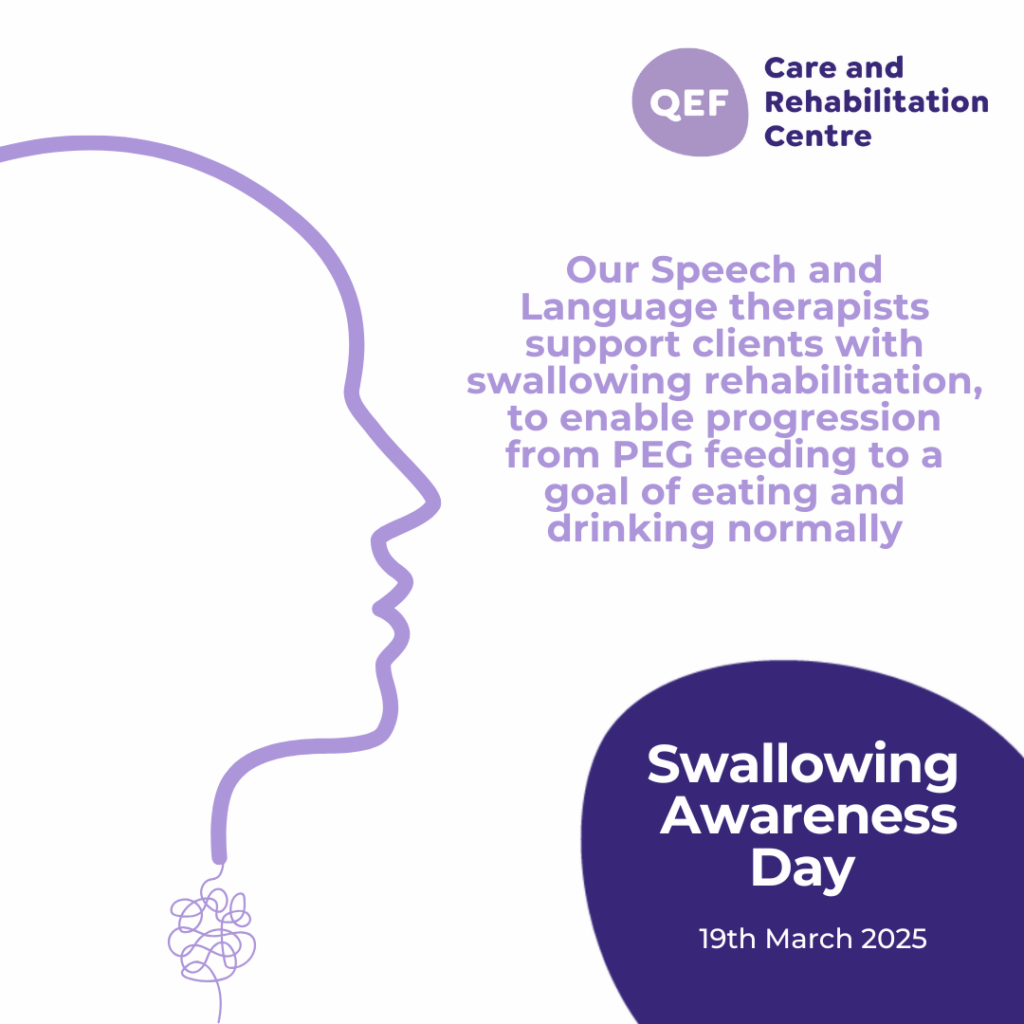At QEF’s Care and Rehabilitation Centre, we support clients with acquired brain injury, stroke, incomplete spinal injury and other neurological conditions.
Swallowing impairments (dysphagia) are a significant issue faced by some of our clients, due to impaired oropharyngeal function, cognitive deficits and/or behavioural problems.
The management of dysphagia is complex and requires specialist training and a multi-disciplinary approach. Dysphagia after brain-injury can have serious consequences, dehydration and malnutrition, aspiration pneumonia and choking. So careful management of dysphagia is an essential part of rehabilitation.
The Speech and Language Therapy (SLT) team not only provides varied communication treatment for clients with speech and language difficulties, but the other important part of our role is supporting clients with dysphagia – providing comprehensive assessment, guidelines and therapy. Treatment options include:
– Changes to positioning, supported by physiotherapy
– Providing adaptive equipment, supported by occupational therapy
– Providing behavioural guidelines, supported by psychology
– Modifying diet and fluid to promote safe swallowing
– Working on swallow rehabilitation exercises to increase strength
The SLT team are also widely supported by dietitians, for advice on nutrition and hydration in modified diets and the catering team who provide nutritional meals in line with national framework and recommendations set by SLTs. Carers and rehabilitation staff also follow swallowing guidelines set by the team, to promote independence during mealtimes and provide hands-on support where necessary.
Therapists and carers often sit when assessing a client’s eating and drinking. However there are times when standing is more appropriate, such as if the wheelchair is quite high and the person needs support under the elbow to bring a heavy arm to their mouth.
Having to eat from a spoon held by someone else isn’t easy for adults, so we approach it sympathetically and with understanding. Our carers and therapists are experienced in making sure this is a comfortable experience for anyone that needs this type of support.


